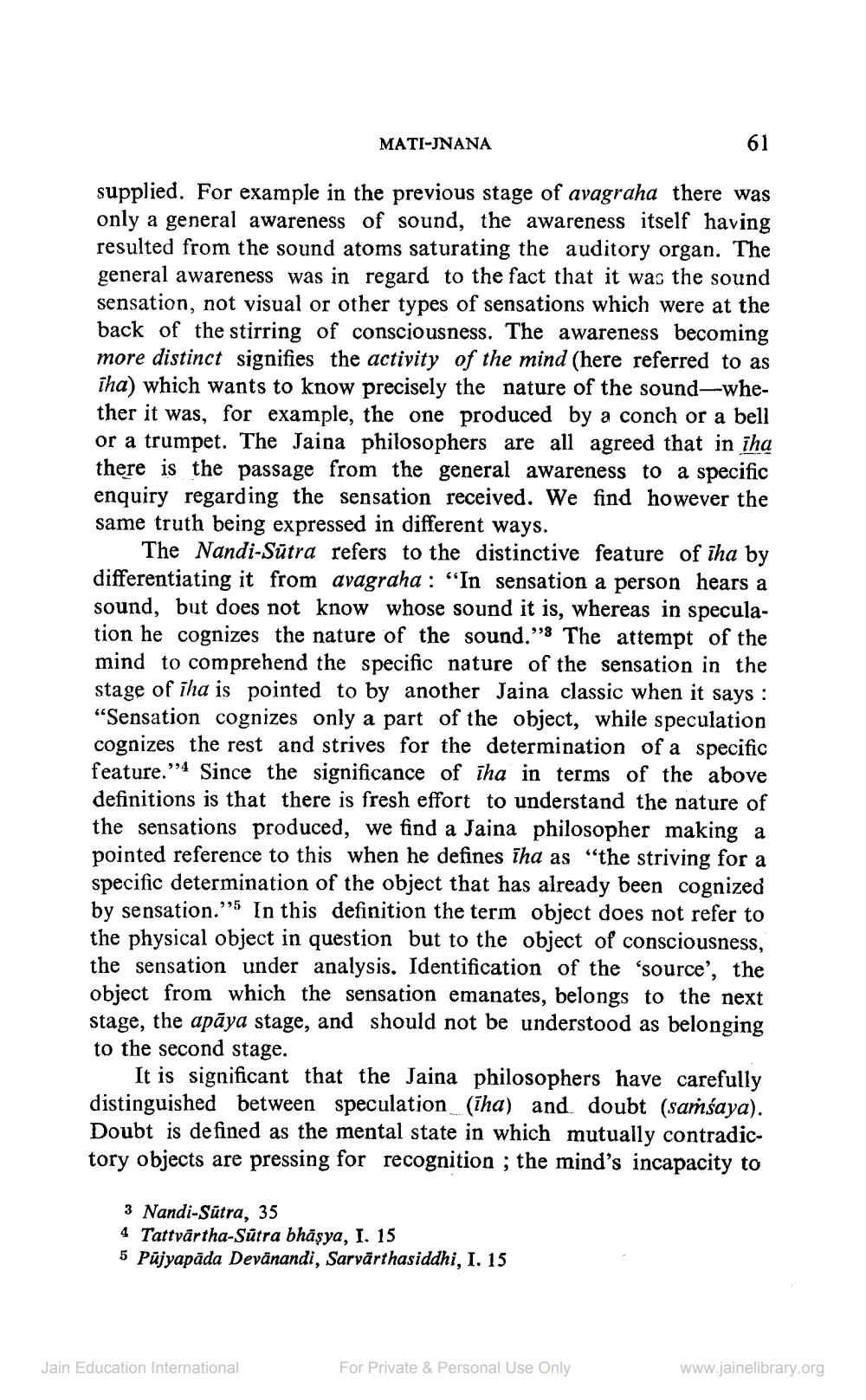________________
61
supplied. For example in the previous stage of avagraha there was only a general awareness of sound, the awareness itself having resulted from the sound atoms saturating the auditory organ. The general awareness was in regard to the fact that it was the sound sensation, not visual or other types of sensations which were at the back of the stirring of consciousness. The awareness becoming more distinct signifies the activity of the mind (here referred to as iha) which wants to know precisely the nature of the sound-whether it was, for example, the one produced by a conch or a bell or a trumpet. The Jaina philosophers are all agreed that in iha there is the passage from the general awareness to a specific enquiry regarding the sensation received. We find however the same truth being expressed in different ways.
The Nandi-Sutra refers to the distinctive feature of iha by differentiating it from avagraha: "In sensation a person hears a sound, but does not know whose sound it is, whereas in speculation he cognizes the nature of the sound." The attempt of the mind to comprehend the specific nature of the sensation in the stage of iha is pointed to by another Jaina classic when it says: "Sensation cognizes only a part of the object, while speculation cognizes the rest and strives for the determination of a specific feature. 554 Since the significance of iha in terms of the above definitions is that there is fresh effort to understand the nature of the sensations produced, we find a Jaina philosopher making a pointed reference to this when he defines iha as "the striving for a specific determination of the object that has already been cognized by sensation."5 In this definition the term object does not refer to the physical object in question but to the object of consciousness, the sensation under analysis. Identification of the 'source', the object from which the sensation emanates, belongs to the next stage, the apaya stage, and should not be understood as belonging to the second stage.
MATI-JNANA
It is significant that the Jaina philosophers have carefully distinguished between speculation (iha) and doubt (saṁśaya). Doubt is defined as the mental state in which mutually contradictory objects are pressing for recognition; the mind's incapacity to
3 Nandi-Sutra, 35
4 Tattvärtha-Sutra bhāṣya, I. 15
5 Pujyapāda Devānandi, Sarvārthasiddhi, I. 15
Jain Education International
For Private & Personal Use Only
www.jainelibrary.org




